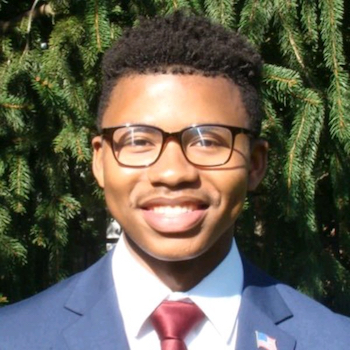
Democracy Never Truly Died in Africa
African democracy is best understood by placing its evolution within its own historical context. Among colonialism’s most damaging effects was the profound distortion it imposed on Africans’ perceptions of their own past. Despite the postcolonial weakening of democratic institutions, the long-term resilience of African democratic traditions deserves recognition. Colonialism stripped Africans of their right to self-govern and dismantled Indigenous systems of governance. Yet the spirit of democracy endured, manifesting in continued struggles for autonomy and justice.
Democracy emerges in a variety of African cultural frameworks and should not be regarded as a purely Western concept. Defining democracy can be complex, particularly because it remains a contested idea in many African countries—and indeed, across the world. Several critical questions arise: Do people interpret democracy the same way outside the West? Can a universal model of democracy be applied to all societies, regardless of culture or history? In exploring these questions, it becomes clear that democratic ideals in Africa must be rooted in Indigenous civilizations. Attempts to impose unmodified, foreign models of democracy risk alienating the very societies they aim to serve. Democratization in Africa is most effective when adapted to reflect local values, allowing citizens to engage with and internalize democratic practices.
Take, for example, the Oromo people—a major ethnic group in sub-Saharan Africa with over 45 million members in Ethiopia and Kenya. The Oromo are known for the Gadaa system, an Indigenous democratic institution that dates back to the 16th century. This system, which encompasses ceremonial, sociopolitical, and economic dimensions, has long structured Oromo society. Even today, communities like the Borana continue to practice it. With its distinctive principles and organization, the Gadaa system challenges the idea that democracy is a Western export. It demonstrates that Africans are not just recipients of democratic ideas but also active contributors to their development.
UNESCO has recognized the significance of the Gadaa system in promoting peaceful leadership and good governance. Functioning as a power-sharing structure, the system comprises a chairperson, elected officials, and a council with responsibilities spanning military, political, economic, and ritual domains. It is built on the rotational transfer of power every eight years, which ensures a dynamic and balanced form of governance.
What sets the Gadaa system apart from many other democratic models is its inclusive view of rights, extending protections to non-human entities such as plants and animals. For instance, the Oda tree—a symbol of the Oromo people—is safeguarded within the system. Gadaa encompasses three interconnected components: the leadership grades through which individuals advance, the eight-year transitional cycle of political succession, and a robust system of checks and balances. As Asmarom Legesse, the Eritrean author of Oromo Democracy: An Indigenous African Political System, noted, “What is astonishing about this cultural tradition is how far the Oromo have gone to ensure that power does not fall into the hands of war chiefs and despots.”
The Gadaa system also serves as the foundation for governance at national, cultural, and local levels. The Caffee Gadaa, or Gadaa assemblies, serve as powerful oversight bodies. These councils evaluate the performance of the Abbaa Gadaas (leaders) and their administrations and have the authority to remove them from office if they violate the Gadaa constitution (Heera), laws (Seera), cultural norms (Aadaa), or moral principles (Safuu). As the highest legislative body in traditional Oromo society, the Caffee Gadaa can declare war or peace, revise or enact laws, and amend the constitution. This foundational charter binds together autonomous regional Gadaa governments—each with its own Caffee Gadaa—under a broader pan-Oromo framework. This structure maintains a balance between local autonomy and collective identity, reinforcing Oromummaa, or Oromo national consciousness.
The Gadaa system also embodies a gender-conscious philosophy, promoting a moral and ethical balance (Safuu) that emphasizes the interdependence of men and women. Within Gadaa, women hold significant influence through the Siinqee sisterhood—a checks-and-balances institution that provides Oromo women with political and social authority. Siinqee allows women to address issues of justice, articulate grievances, and participate in civic life. It serves as a mechanism for peacebuilding and conflict prevention by enabling direct engagement. Women also play a central role in raising children according to cultural values, fostering a spirit of tolerance and constructive communication.
Before the imposition of colonial rule, African societies like the Oromo practiced forms of democracy that were deeply integrated into every aspect of communal life. The Gadaa system exemplifies enduring democratic values that span an individual’s lifetime and even extend to the environment. Despite persistent challenges such as hunger, conflict, and ethnic division, Africa’s democratic past remains an essential part of its political identity. Limiting the concept of democracy to Western paradigms obscures a richer, more inclusive global history of governance. In this context, the Gadaa system stands as a uniquely African model with the capacity to respond to contemporary political challenges across the continent.
